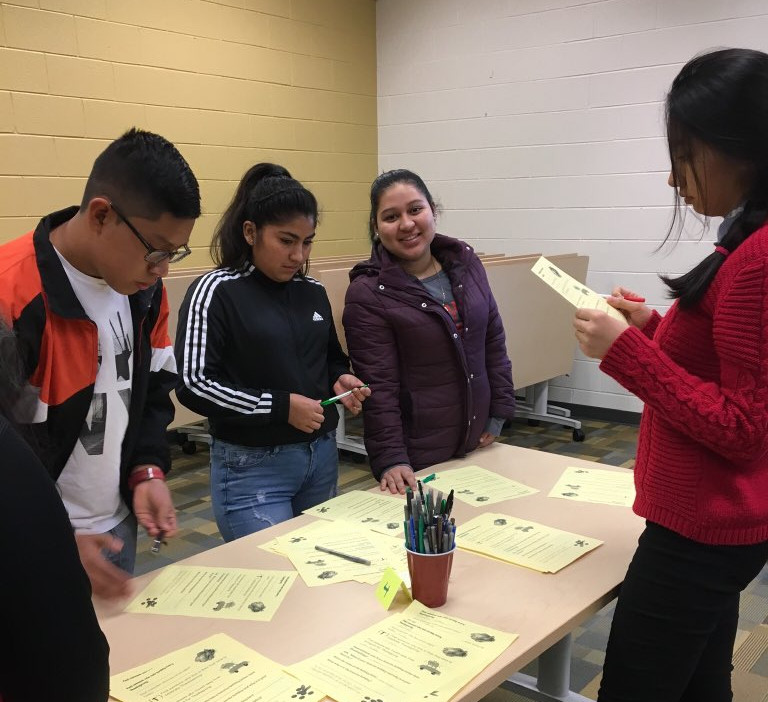Which do you prefer? Summer or winter? It’s not a very difficult question, most people could easily think of the answer and a few reasons why without much effort. You’ve probably had this exact discussion with someone and know what points they’d bring up to defend their side.
Now try to imagine making that same argument in a language you hardly speak. Try it with someone who has never experienced one of those seasons. When you don’t have the language skills and there is such a large cultural divide, even something as simple as picking your favorite season becomes difficult.
STARS is a program at Wakefield High School that strives to welcome recently arrived students into the culture of an American high school. We set up activities, bring in speakers, and organize events for the students to make them feel like a part of the school. This past Friday, we presented the students with a few topics and had them pick a side and voice their opinion. We wanted them to have some experience in standing up and expressing themselves, something especially hard with a language barrier. Topics ranged from things as easy as picking whether they prefer a home-cooked meal or a restaurant/take-out, to how they learn best: by reading and writing, by testing and doing, or by speaking and discussing.
At first the students struggled with the same thing all high schoolers do: not wanting to be the first to talk. Once we got passed that, though, they started being more eager to share their opinion, especially when it was taking the opposing side! The language barrier was still there, but by the end of it many of the students were so focused on the debate that they moved past their discomfort!
One student in particular, Abdu, only arrived to the United States in July. While he still has difficulty with basic English, he was energetic and tried using any means he could to get his point across. When asked if he preferred to work in groups or alone, he grabbed a few chairs and mimed multiple students being distracted while one did all the work. When most of the group said they preferred reading, writing, and history to math and science, he held up one finger as a response. “Only one answer,” he said, saying how he preferred working harder to be able to find the one, correct answer in math and science instead of being able to take any point in the humanities.
Abdu may be an exceptional person, but his circumstances are far from out of the ordinary. At CIS we want to make sure schools are a place where all students feel welcome and have the opportunity to advocate for themselves. To learn how to stand up for what they feel is right. To help students move past their barriers and truly become part of their schools and their communities.



Leave A Comment